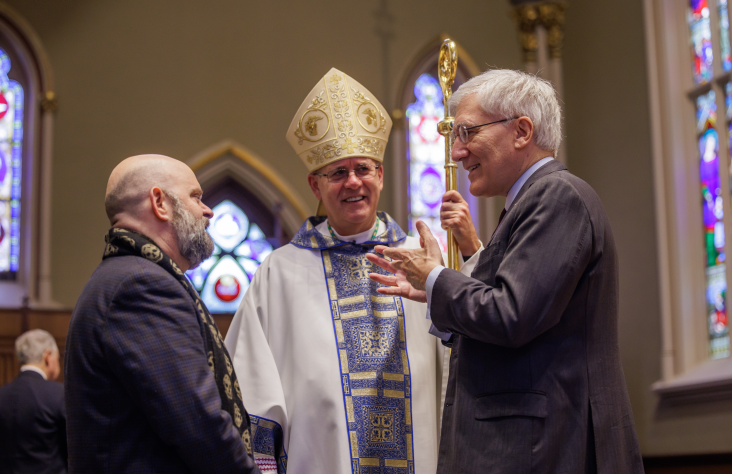March 14, 2023 // Special
On March 14, The Light is ON for you
Going to confession intimidates most, if not all, of us at some point or another. There’s something truly painful about confronting ourselves and our sins honestly, and the sacrament of reconciliation draws us out of our comfortable lives and into that place of self-knowledge. Despite our reticence and fears about confessing our sins to a priest (who acts in persona Christi in the confessional, or “in the place of Christ”), incredible emotional and spiritual healing can occur when we humbly approach the confessional.
Lent is the perfect liturgical season to return to God in this way. It’s true that we can — and should — take our sins to the Lord through personal prayer and a daily examen, but the sacrament actually washes away our sins through absolution. It’s as if God wipes our souls clean so that we can begin anew. Reconciliation also helps us see ourselves more honestly, and the more we frequent the sacrament, the more supernatural grace we receive to overcome those bad habits and vices that seem to repeat themselves as patterns of behavior in our lives.
It seems that what’s required of us to approach God through the priest in the confessional is humility. If we are humble, our fears and embarrassments regarding our sins don’t matter anymore. We’re not considering the possibility of judgment, rejection or ridicule; instead, we are seeking God’s wellspring of mercy that opens the floodgates of healing for which we desperately long in our lives.
Think of the beautiful lyric in the hymn, “Hosea:” “Come back to me with all your heart. Don’t let fear keep us apart.” This is God speaking to you personally, beckoning you to draw near to Him. To be reconciled to God through this sacrament means that we become, once again, sinless — and thus more receptive to His grace moving in our lives. The act of reconciliation is an act of love, rather than of punishment and judgment.
If we approach reconciliation with the intention of closer union with the one who never stops pursuing us, the result will always be a greater love for God and reception of His immense love and mercy. Mercy, not judgment, will be the ultimate gift, and we will discover a deeper longing to repent, to change and reform our lives so that we will maintain that closeness with God.
There’s a reason why the Eucharist and reconciliation are both referred to as sacraments of healing. When received together, or close together, the healing God has in store for us multiplies exponentially. What a powerful way for us to enter into Lent: to desire a truly changed heart, one that is of flesh and not of stone. As our hearts change, our lives begin to transform, too. That is our ultimate purpose of making Lent meaningful and intentional: to become a new creation in Christ.
Spiritual metamorphosis — our Easter resurrection — can only occur when we are open and willing to modify our behaviors. That’s what Lent affords us: the opportunity to repent. The sacrament of reconciliation is one of the places we can begin to do this. May we run into the arms of Jesus, who awaits us through the priest in the confessional. Let us approach Him as a child with a heart wide open, a heart that is ready and eager to receive all God has in store for us. Then we can celebrate Easter with the fullness of love and expectation of God’s incredible and unfathomable mercy.
On Tuesday, March 14, from 6-8 p.m., every parish in the diocese will offer the sacrament of reconciliation as part of the diocesan-wide initiative, The Light is ON for You.
FIVE TIPS FOR INVITING A FRIEND
Pray. Pray for the individual. Pray that God’s grace may work through your invitation. Pray with confidence that God is listening and will act in His time.
Setting matters. Extend the invitation when the individual is not stressed, not feeling rushed and is in a position to consider the invitation.
Make it easy. Could you provide a ride? And, even easier, invite your friend to any parish in the diocese on March 14 between 6-8 p.m. as part of The Light is ON for You.
Just do it. God’s grace is far more powerful than our fears and hesitations.
Explain the sacrament. Lastly, if it has been a while since your friend has received God’s forgiveness through the sacrament of reconciliation, he or she will likely have questions. Visit www.diocesefwsb.org/Light for information regarding what the sacrament is and how to go to confession.
The best news. Delivered to your inbox.
Subscribe to our mailing list today.






